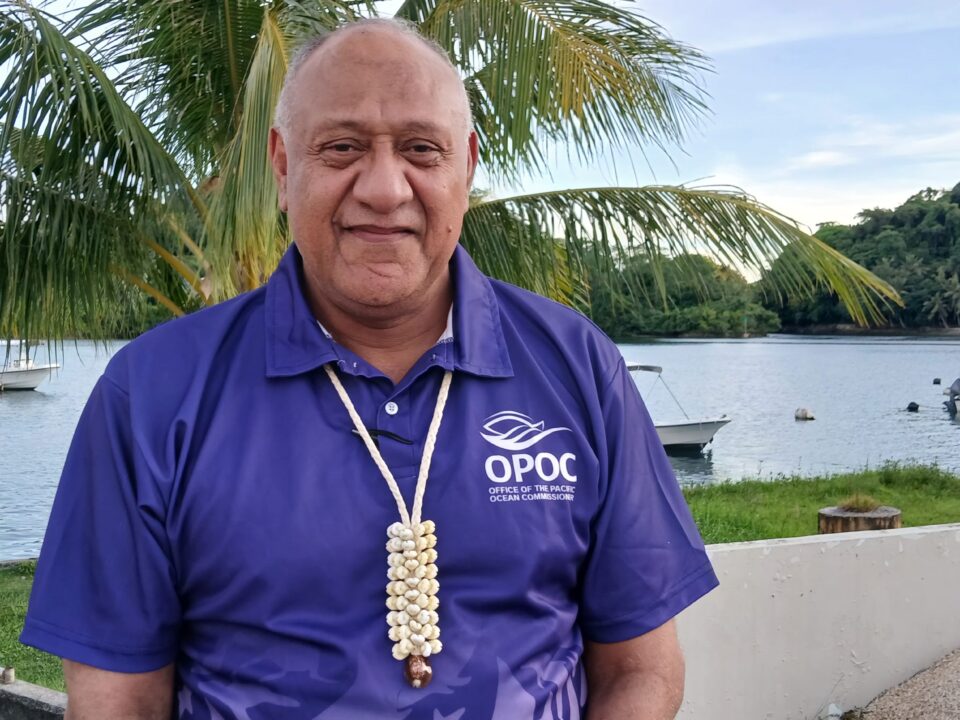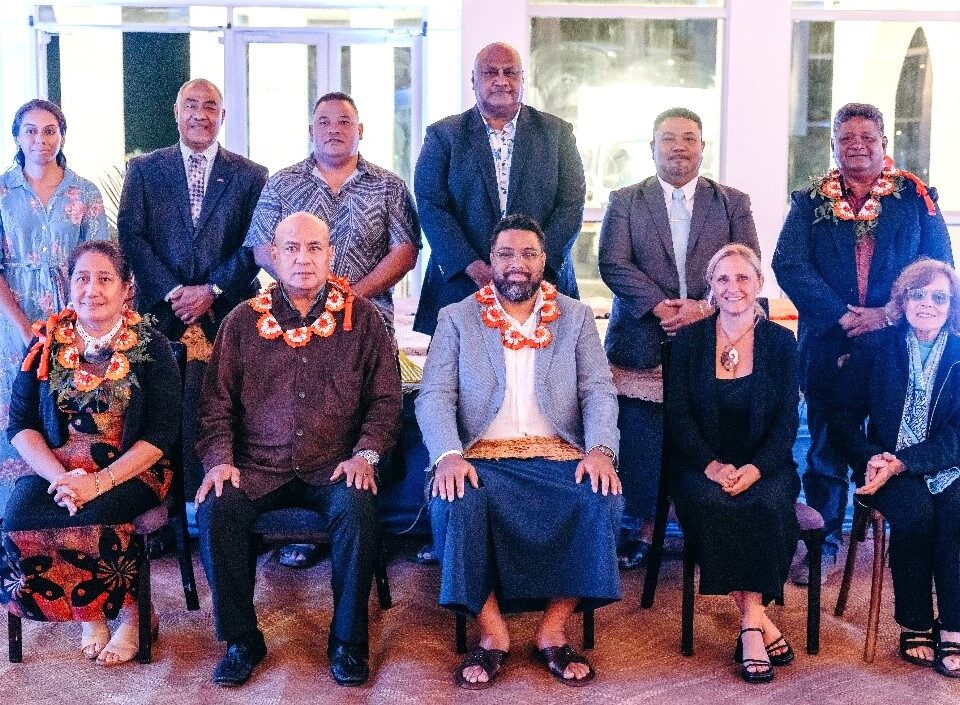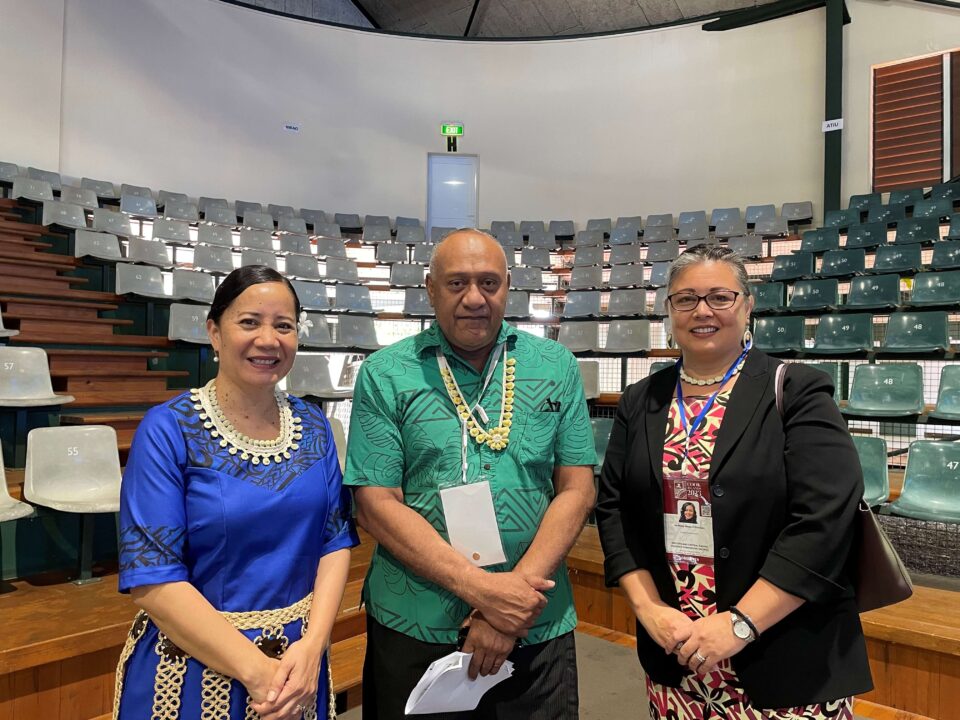
Pacific negotiators enter the second week of BBNJ IGC3 negotiations in New York this week with clear mandates to push for their national and collective key negotiating positions for the region. PACNEWS Editor, Makereta Komai caught up with the Manager and Ocean Analyst for the Office of the Pacific Ocean Commissioner (OPOC), Peni Suveinakama to provide a brief analysis of the first week of negotiations.
Makereta Komai: We’ve come to the end of week one of the BBNJ negotiations here in New York, what is your take on how things have panned out in terms of the Pacific’s key negotiating positions?
Peni Suveinakama: I think this is an important undertaking mandated by the UN General Assembly and the Pacific Islands Forum Leaders that called for all Forum mechanisms to provide necessary support for our negotiators. The experts are here as well as Member States. Seeing how the negotiations have panned out in the first week, I believe the negotiations format is very fluid at this stage. So for us it’s constantly improving the processes that we follow, improving the co-ordination mechanisms to ensure the information from the experts are flowing to the Member States. The main reason the experts are here, co-ordinated through the office of the Pacific Ocean Commissioner, is because of the multi-stakeholder and multi-sectoral nature of BBNJ, involving all regional players. I think that is what we are building on in the first week. We have done so in past as well, in the previous IGCs and prep-com stages where we follow agreed regional guidelines and best practises. Off course national governments have their own processes. Given that it covers areas beyond national jurisdiction, it is about bringing those agreed principles to make it more palatable for the delegations to use in the negotiations.
MK: How responsive have Pacific Member States been to the expert advice in guiding the negotiations?
PS: I can say at the outset that members are responding positively. They are eager to learn of the regional approaches and national governments have their own processes and national laws and policies. Just one classic example is the Environmental Impact Assessment (EIA), one of the elements in the negotiations. The Secretariat of the Pacific Regional Environment Programme (SPREP) has developed a regional guideline that unifies national laws of the Pacific and is something that we can see that national governments have used as part of constructing their own EIA processes. Whilst we are pushing for the conservation and sustainable use of our resources and protecting the interests of our national governments, we have full sovereignty within the national jurisdictions but also looking at areas and ways to also influence what will happen outside our national jurisdictions.
MK: How much of that is being reflected in the current language of the negotiations?
PS: I can say it has been reflected in a number of ways. In this multilateral negotiation process, to have your position fully reflected, you need to be four or five steps ahead of other delegations. I think the Pacific is getting most of their issues that they’ve mutually agreed to as Pacific Small Island Developing States (PSIDS) within the Pacific Islands Forum (PIF) membership within the text. We are at a stage now where the President has put up a text compilation of the treaty including all the proposals, bearing in mind that there are bracketed text that will need to be debated between now and IGC4.
MK: When you saying bracketed text, does that mean it is not agreed yet until Parties agree to it before it is taken off and it becomes treaty language?
PS: Right now all the proposals are being reflected under the relevant articles, there are also different options based on what delegations have expressed from the floor. I think where there are disagreements, there will be brackets. I guess you are correct in saying that once there is agreement and consensus amongst the whole UN membership, the brackets will be removed.
MK: Give me a recap of the key negotiating positions of Pacific Islands Countries.
PS: One of the key aspects of the negotiations given that this is areas beyond national jurisdiction, is that the Pacific is trying to protect their fisheries interest. We understand most of the economies in the region rely heavily on fisheries and that is one area that Pacific delegates are ensuring will be protected – particularly the existing configuration and existing measures that are already in place through the Pacific Islands Forum Fisheries Agency (FFA) and the Western and Central Pacific Fisheries Commission (WCPFC). Another key important issue is benefit sharing, there are monetary and non-monetary benefit sharing. The question is how the Pacific can maximise gains from this benefit sharing mechanism that they are trying to put in place through this agreement. In terms of capacity building as well as technology transfer, we understand most of the developed countries will have the capacity to go out to areas beyond national jurisdiction to carry out marine scientific research and also have access to marine genetic resources which will be governed under this agreement. It’s about creating a level playing field for Pacific Island countries to also ensure we have access through the benefit sharing mechanism. The non-monetary aspects include information sharing to ensure that we also have ability to access information. If someone has already done it, we don’t have to dedicate resource to go and conduct the same research. One other aspect is the area-based management tools – we are ensuring the Pacific will be able to also have a say in terms of what conservation measures are being put in place outside of our national jurisdictions. I think that is in line with what our Leaders are envisaging for our Blue Pacific – of having that control over the blue continent that we have. I think one other aspect I can say is the overall intention of the convention, which is conservation of marine biological biodiversity. The developed countries want free and open access to everything while the Pacific wants to ensure measures and checks and balances are in place that will that protects genetic materials being taken out and that there are some sort of returns for developing countries. Lastly, traditional knowledge as mentioned in a number of occasions earlier, it’s a unique position for the Pacific. We are pushing not only for the use of traditional knowledge for commercial use by external partners and stakeholders but there must be some level of accountability to be put in place. We also understand the sensitivity in sharing of information by traditional knowledge holders but off course it must complement science. The Pacific is pushing for traditional knowledge as a complement but not a subset to further enhance available science. I think it augurs well with the Secretariat of the Pacific Community’s (SPC) Ocean of Science decade consultations in the region.
MK: In big multilateral negotiations like this, the Pacific negotiates as a bloc and solidarity is important to push common key positions you outlined earlier. Is that showing here in the negotiations?
PS: Very much so. We see that they are taking time to have discussions in the corridors, taking time to have discussions in the room to iron few things out. I think there is very much solidarity within the group and the group is going strong in terms of pursuing the collective interests of the Pacific. I think the delegates are clear on that. We have the New York based delegates and we have the capital based delegates but they are clear on the collective interests of the Pacific is paramount to everything else. They are treading carefully through other groupings such as the Alliance of Small Island States (AOSIS), as well as G77. But I think the Pacific will be going strong in the next IGC as they have been going strong for the last past four years.
PACNEWS coverage of the BBNJ IGC 3 in New York is made possible with funding support from the New Zealand Government through the Office of the Pacific Ocean Commissioner (OPOC).
Published: PACNEWS



